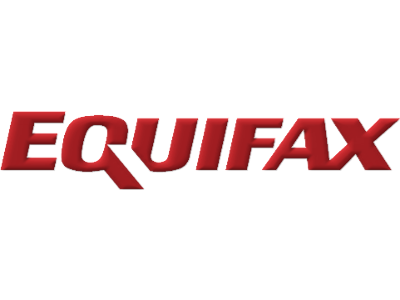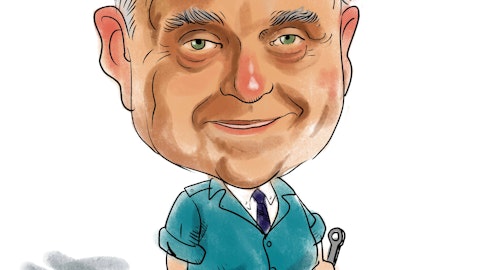Last week, CBS’s popular Sunday night news show 60 Minutes ran an expose on the three major credit bureaus — Equifax Inc. (NYSE:EFX), Experian, and Transunion — slamming them for their poor customer service and operational deficiencies.
While this investigation may stir up customers, will it really affect the industry’s record of massive profits?

Credit where it’s due
The report claimed that as many as 40 million Americans have a mistake on their credit report, and half of those have what the government calls “significant” mistakes.
Unfortunately, fixing credit report errors can be almost impossible. The three major bureaus send their customer claims overseas, to dispute agents who have little authority or authorization to make corrections. Experian requires its dispute agents to examine 90 disputes per day, or more than 11 disputes per hour in an eight-hour workday, according to three ex-employees of Experian interviewed by 60 Minutes.
Needless to say, with fewer than six minutes per dispute, each “investigation” gets very little attention. For consumers, this presents a huge challenge. Any problematic error on a credit report can add hundreds of dollars to a monthly mortgage payment, an amount most would deem worthy of more than six minutes’ scrutiny by credit bureau agents.
Credit bureaus as the new credit agencies
The bureaus that evaluate personal credit risk are quickly joining the ranks of the disowned Moody’s Corporation (NYSE:MCO), Standard & Poor’s, and Fitch, which took regulatory heat for giving AAA ratings to subprime mortgage products during the 2008 financial crisis.
Since then, the three credit rating agencies have been frequent defendants in the courtroom. Moody’s Corporation (NYSE:MCO), Standard & Poor’s (a division of McGraw Hill Financial Inc (NYSE:MHFI) ), and Morgan Stanley recently settled a civil lawsuit that cost them $225 million.
And that’s just the start of the debacle. The U.S. government has pushed for its own lawsuits against ratings services, filing a suit against Standard & Poor’s. Some investors anticipate another suit against Moody’s Corporation (NYSE:MCO), given the two companies’ similarities.
Luckily for the three major personal credit bureaus, they’re unlikely to ever be responsible for a full-on mortgage bubble or derivatives disaster like the institutional credit agencies. That may save them from any and all legal action, given that authorities have much bigger targets in their sights.
Why credit bureaus aren’t going anywhere
Unlike the institutional credit ratings services, which evaluate the creditworthiness of public companies with public data, the personal credit bureaus evaluate the creditworthiness of individuals with proprietary information, which largely protects these companies from new competition.
Furthermore, the credit bureaus are vital to consumer lending. Banks simply cannot afford to do their own risk assessments of individuals on high-volume personal loans and credit cards. Banks make as little as $500 on a new car loan; evaluating every customer’s creditworthiness with their own data would significantly increase those banks’ cost of doing business, draining their profits.
As investors, we have to concern ourselves with the bottom line.
Transunion is owned by a division of Goldman Sachs Group, Inc. (NYSE:GS). Naturally, Goldman Sachs’ investment banking and trading income dwarf the contribution from its credit bureau.
Experian is an internationally based company that trades in London. The stock trades at a forward P/E of 15 — roughly in line with the average S&P 500 component, according to The Wall Street Journal — which makes the company and its wide moat look like an appealing opportunity.
Looking domestically, Equifax Inc. (NYSE:EFX) is the only U.S.-listed pure-play. The company recorded more than $300 million in free cash flow in seven out of the last eight years. In the last 12 months, Equifax converted more than 20% of revenue into free cash that can be paid out to shareholders.
Equifax Inc. (NYSE:EFX) continues to grow organically and by acquisition. In its July investor presentation, the company outlined its plans to grow its core U.S. Consumer Information Services product revenue at an annual clip of 5%-7% and earn operating margin of more than 40%.
Its smaller initiatives, including commercial credit and workforce services in the United States and consumer credit products in emerging markets, could deliver low double-digit revenue growth going forward. Consider Equifax Inc. (NYSE:EFX) as a perpetuity on consumer lending — as long as lending volumes strengthen, so will its bottom line profits.
In the short term, consumer backlash may make for concerning headlines, but the economics of these credit bureaus’ business are sound. Their customers have no real alternatives to the three agencies’ products, and new regulation would only make it more difficult for new companies to enter the industry. Furthermore, given the bureaus’ pricing power, they can pass any and all litigation costs on to their customers.
While I cannot commend the agencies for their operational practices, they cannot be condemned as poor investments, either.
The article Are Credit Bureaus the New Evil Financial Companies? originally appeared on Fool.com and is written by Jordan Wathen.
Fool contributor Jordan Wathen has no position in any stocks mentioned. The Motley Fool recommends Goldman Sachs and Moody’s.
Copyright © 1995 – 2013 The Motley Fool, LLC. All rights reserved. The Motley Fool has a disclosure policy.





